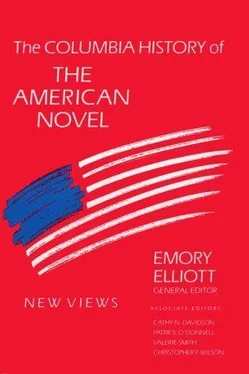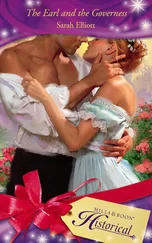Predictably, running side by side with the sermons and newspaper editorials condemning the genre was a countering polemic in its favor. Other social commentators on the early novel claimed it was educational, nationalistic, populist, precisely what was required to bring together a nation recently fragmented by a Revolutionary War and further divided by the influx of immigrants in the postRevolutionary period, European immigrants who did not speak the same language, practice the same religion, or share the same values -3- as those earlier arrived on these native shores. By its linguistic simplicity, the novel was uniquely accessible to working-class readers and would introduce them to middle-class (and, presumably, WASP) values and manners. By its typical focus on women characters and its frequent addresses to women readers, it would help to erase the gender inequities built into the early American educational system. By its preoccupation with seduction as a theme, it would warn women that they had to be smart to survive. And even the early genre's suspect attachment to local scandal as a major source for its materials served a worthy end, for it warned men that their infamies could be broadcast to the community at large and that they could thus be held accountable for private sin in the court of public opinion.
What was the real function of the novel in early America? Again one might make the analogy to modern cultural forms such as television: the verdict is still out. But what is obvious is that, in a market sense, the new form triumphed decisively over its detractors. On the most basic, mercantile level, this is evident from late eighteenthcentury publishers' catalogs and book advertisements. Prior to around 1790, books that we would now call novels (for example, Henry Fielding's Joseph Andrews ) were frequently hawked as "narratives," or "personal histories," or simply left unlabeled. After around 1790, virtually any text that could conceivably be connected to the term "novel" (as noun or adjective) wore that designation, and autobiographical and biographical accounts, crime reports, conversion stories, captivity narratives, religious tracts, collections of sermons, even poetic sequences were all peddled as novels. As an established and valued commodity, novels sold.
The early contentious history of the novel in America anticipated in subtle and profound ways the debates, anxieties, and controversies about the genre during the nineteenth century, issues taken up in the chapters in the first section of this volume. Where, for example, is the boundary between the autobiography and the novel? The blurring of one into the other has a long history. That blurring also raises crucial theoretical and even political issues. As-told-to narratives, for example, contest the interrelated notions of "authenticity," "authority," and "authorship." An autobiography must be shaped and controlled and plotted in ways that resemble fiction, but the very concept of fictionality jeopardizes an authoritative "I." Which has more status, -4- novel or autobiography? Which has more cultural power? Questions of genre — especially when we address slave or Native American narratives — turn (as did discussions of the early novel) on questions of social truth and social power.
Authority and authorship also turn on questions of economic power. By the mid-nineteenth century, the "novel" did not exist as any single entity. Popularity produces diversity, and soon there were many kinds of novels designed for a vaguely differentiated and overlapping audience — sensation novels, pulp romances, adventure stories, newspaper serials, reform novels. Some writers, such as Nathaniel Hawthorne, even wanted to distinguish their "romances" from the more prevalent but still partly suspect varieties of the novel.
Hawthorne's trepidation lest he be called a "novelist" seems rooted in virtually all of the early American anxieties about the morality, factitiousness, accountability, moral purpose, and political function of the novel in society, anxieties arising (like Hawthorne's own) from a Puritan preoccupation with the practical social value of products of the imagination. Even Hawthorne's well-known uneasiness about fiction and gender, articulated throughout his life and his fiction in a variety of ways, seems to be a vestigial manifestation of the very first anxieties about the novel in America. The first two American best-sellers, Charlotte Temple and The Coquette , were both penned, after all, by "scribbling women."
Did the novel forever alter America? Can a literary work really reform/re-form society? Can any cultural form effect social change? Or do cultural forms reflect those changes in progress? Agency, at one theoretical level or another, remains an issue in all discussions of the novel to date, just as it was in the first debates on the morality of fiction. So what else is new? Our fears and our hopes about the social potentialities of any new cultural phenomenon continue to inspire much the same debate (with the attendant tropes of apocalypse or redemption) that surrounded the emergence of the novel in late eighteenth- and nineteenth-century America.
Cathy N. Davidson
-5-
Thehallmark of the early American novel is its instability, an uncertainty and confusion in almost every area related to fiction making; in order to highlight the most significant result of this instability, I would like to pretend at the outset of this chapter that I am a critic wedded to contemporary critical fashion. With this guise in place, I begin by declaring that, in fact, there is no such thing as the "early American novel." To prove my point, I carefully examine each term in the phrase to show that its intended meaning necessarily evaporates under critical scrutiny. First, take the word "early," which in this context is supposed to signify an event or events (the production of novels) occurring in the first part of some division of time, or of some series. In what sense, then, are the works that I intend to discuss — books by William Hill Brown, Hannah Foster, Susanna Rowson, Hugh Henry Brackenridge, Charles Brockden Brown, and James Fenimore Cooper — early products of American history or culture?
By consensus the first "American novel" is William Hill Brown's The Power of Sympathy , which appeared initially in 1789. But the land mass known as America had been called by that name since 1507, when the German geographer Martin Waldseemüller named it after its founder, Amerigo Vespucci; in that regard, "America" — its history and surely its culture — had existed for 282 years before Brown published his novel. If we follow the editors of one older anthology of American writing (1978), who declare that by American literature they mean "literature written in English by people who -6- came to settle in the territory that eventually became the United States of America," then American writing begins in 1630 with William Bradford's history, Of Plimmouth Plantation ; Brown's book, still 159 years away, is hardly an early American production. (Newer anthologies, if they begin with voyages of discovery, assign dates like 1492 to the first American writings; if they commence with Native American "myths," the dates are earlier still, though mostly unknown.) Perhaps by "early" we intend something like the "beginning" of the American novel, but you do not have to read very far in Brown's book to realize that, as a "novelist," he is totally dependent on Samuel Richardson, and in particular Richardson's Pamela (1741-42), where the story, as is Brown's, is told through a series of letters; moreover, Brown's plot centers on the theme of seduction, another Richardsonian gift to the world of fiction. One might plausibly argue that the American novel truly begins with Richardson; without him there would be no Brown. Pamela , in fact, was the first English novel printed in America, in 1844. (Another English antecedent would be Laurence Sterne, whose A Sentimental Journey is actually mentioned in The Power of Sympathy .) Finally, suppose that "early" means, from our perspective, belonging to a period far back in time. This makes the most sense, relatively speaking, if you consider 200 years ago "far back in time" — though our country is still proclaiming its newness, still championing its innocence, still denying that it is drenched in time.
Читать дальше











